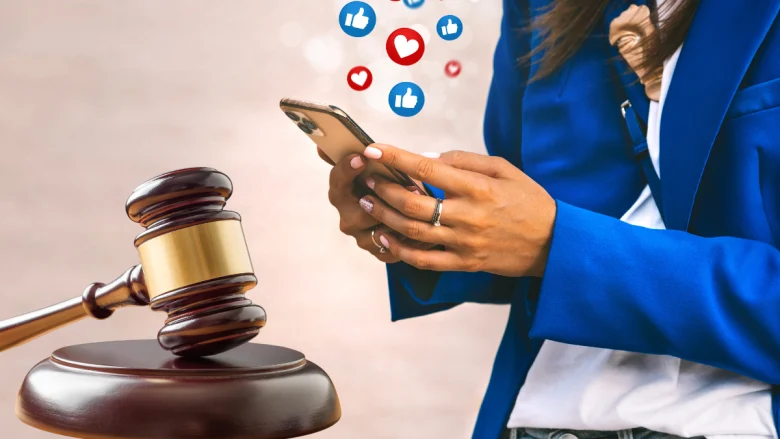Social media has become an integral part of daily life, influencing everything from personal connections to global commerce. From billion-dollar companies marketing their products to individuals sharing personal opinions, social media platforms provide an unprecedented communication channel. However, as much as these platforms empower users, they also introduce a labyrinth of legal considerations. Users and businesses alike must understand that the online realm is not exempt from the law. Whether it’s privacy violations, copyright disputes, or data breaches, every action on social media can have legal implications. This article explores the primary legal challenges and regulations governing social media use to guide individuals and organisations toward safe and compliant practices.
Understanding Privacy Regulations on Social Media
Privacy remains one of the most significant legal issues in the context of social media. Platforms often collect and store vast amounts of user data, from profile information to browsing behaviours and location tracking. These practices raise questions about how this information is used and who has access to it. Government-enacted regulations such as the General Data Protection Regulation (GDPR) in the European Union and the California Consumer Privacy Act (CCPA) are attempts to protect individual privacy rights. While these laws allow users more control over their data, they also impose strict compliance requirements on organisations using social media for marketing or engagement purposes. Violations can lead to heavy fines, tarnished reputations, and loss of user trust.
Copyright and Intellectual Property Issues
Social media places intellectual property laws under constant pressure to evolve. Whether it’s sharing a copyrighted image, using someone else’s music in a TikTok video, or reposting an article without permission, social media platforms see countless copyright infringements every day. While platforms like Instagram or YouTube offer tools for copyright holders to flag violations, individual users and businesses must educate themselves about fair use, Creative Commons licensing, and proper attribution practices. Misusing copyrighted content not only exposes users to lawsuits but also erodes trust between creators and audiences. Properly respecting intellectual property is crucial for maintaining ethical and legal social media practices.
Defamation and Libel Risks on Social Media
Social media’s immediacy and wide reach can have both positive and negative effects on public opinions. Opinions shared online can quickly cross the line into defamatory content if they falsely harm someone’s reputation. Both individuals and businesses must recognize the legal distinction between free speech and statements that are defamatory. Numerous cases have demonstrated how social media posts can lead to libel lawsuits, with plaintiffs successfully proving damages. Understanding defamation laws and maintaining civility online are critical for staying out of courtroom disputes.
Advertising Standards and Regulations
From influencers promoting products to small businesses running ads, advertising regulations now play an essential role in social media ecosystems. Truth-in-advertising laws demand that ads be honest, non-deceptive, and substantiated with evidence. For instance, the Federal Trade Commission (FTC) in the U.S. enforces these rules and insists that influencers disclose paid partnerships or sponsorships publicly. Non-compliance can lead to severe penalties and eroded consumer trust. Businesses must also comply with platform-specific advertising guidelines, which are becoming more stringent to prevent false claims and unethical marketing.
Data Security and Breach Notification
The massive amount of sensitive user data stored on social media platforms brings a high risk of cybersecurity breaches. Hackers targeting platforms or businesses can compromise user privacy and lead to significant legal consequences. Data protection laws often mandate that companies inform users when data breaches occur. Failure to provide timely and precise breach notifications can result in lawsuits and compliance penalties. Businesses using social media platforms as part of their operations need to stay vigilant about protecting their audience’s data through secure practices and continuous monitoring.
Social Media Policies for Businesses
Organisations face increasing pressure to develop and enforce clear social media policies. These policies play a crucial role in educating employees about the appropriate ways to represent the company online. Effective social media policies should outline expectations about sharing sensitive company information, interacting with customers, and monitoring compliance to keep everyone on the same page. Policies must also address how businesses handle incidents such as unauthorised posts or negative feedback to prevent legal liabilities. Organisations can reduce risks significantly by developing strong internal protocols and ongoing training programmes tailored to social media.
Employee Conduct and Social Media
Employees’ online behaviour intersects with employment law, creating a unique set of challenges for companies. What an employee says or shares on their personal social media accounts can affect their employer, especially in cases of offensive language, workplace harassment, or breach of trade secrets. While employees often have free speech protections, businesses can still implement policies about how their organisation is represented online. Striking the right balance between respecting employee privacy and protecting the company’s reputation is key to managing social media risk.
Global Social Media Laws and Regulations
Social media operates on a global scale, but laws concerning online conduct vary widely across countries. What might be considered legal in one region could constitute a serious offence elsewhere. Navigating these complex jurisdictional regulations presents challenges for multinational companies and users alike. From China’s “Great Firewall” policies to Europe’s GDPR and the U.S. Digital Millennium Copyright Act, the lack of universal standards is problematic. Businesses and influencers with international audiences should work closely with legal experts to understand the intricacies of the markets they operate in.
The Future of Social Media Law
The rapid evolution of social media ensures that regulations and risks will continue to change. Emerging technologies like artificial intelligence and augmented reality are already reshaping how platforms operate, introducing new legal challenges. For example, deepfake videos and AI-generated content will test copyright laws in unprecedented ways. Governments and industry stakeholders must collaborate to create adaptive legal frameworks that protect users without stifling innovation. For individuals and organisations, staying informed about legal trends in the digital space is critical for long-term success and security.
FAQs
1. Do I have to comply with social media laws globally?
If you’re operating an international business, you must comply with relevant social media regulations in each region you target. Consulting with legal professionals familiar with these laws is advisable.
2. Are small businesses at risk of legal trouble on social media?
Yes. Small businesses using social media for marketing or customer interaction face risks such as copyright infringement, defamation claims, and data breaches. Legal compliance applies regardless of a business’s size.
3. How can I protect my personal social media profiles from legal issues?
Be mindful of privacy settings, avoid sharing false or harmful information, and always seek permission before using copyrighted materials. Staying informed about platform-specific rules can also help avoid problems.
4. What should I do if my content is flagged for copyright infringement?
Reach out to the platform to learn more about why your content was flagged. If you believe the report is in error, most platforms offer the ability to file a dispute.
5. Can businesses be held responsible for employee posts?
Potentially, yes. If an employee’s post compromises the company’s reputation or violates laws, the business might face legal consequences.




